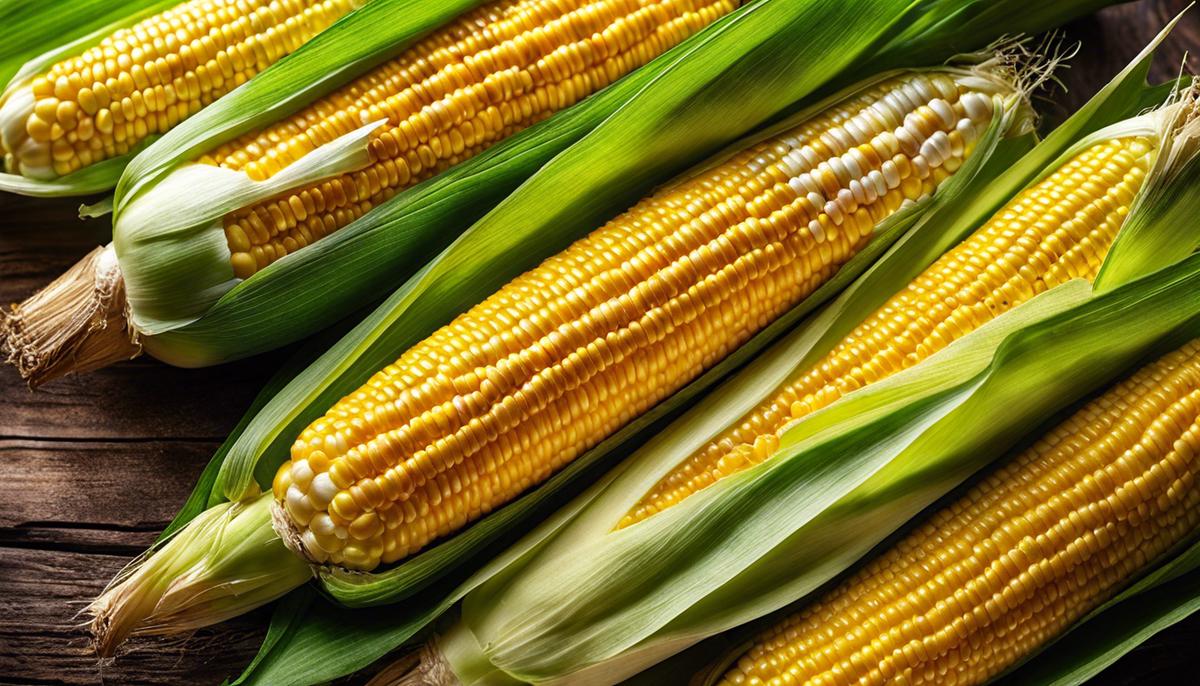As the world evolves, so too do the dynamics of health trends and diets, shaping significant shifts in the food and fitness markets. Among the various dietary patterns that have gained traction in recent years, the ketogenic or ‘keto’ diet stands out, owing to its unique approach to wellness and weight loss. This high-fat, low-carbohydrate diet has not only swept the globe but has also profoundly impacted consumer trends, purchasing behaviors and therefore, market demands. Amidst this culinary revolution, it’s essential to assess the compatibility of various foods like corn with the ketogenic diet and explore the potential economic opportunities within the booming keto trend.
Understanding Keto and Its Market Implications
In the ever-evolving world of health and wellness, the ketogenic or ‘keto’ diet has come forth as a major player. Labeled as a game-changer by many, it singularly flipped the conventional idea of dieting by minimizing carbohydrates and prioritizing fats. This high-fat, low-carb approach induces a state called ketosis in the body – where instead of burning carbs for energy, the body starts burning its fat storage. It’s a simple concept, but its effectiveness is unmistakable, making it a favorite amongst those striving for weight loss, improved blood sugar control, and enhanced brain function.
Its emergence as a significant trend is due to several factors, with far-reaching impact and adaptable nature topping the list. The broad range of food options makes the diet palatable to many, nullifying the standard ‘diet monotony’. Moreover, it’s not confined to weight loss only. Studies show it can play a significant role in managing and possibly reversing conditions like type 2 diabetes, epilepsy, and certain types of cancer. Additionally, with innovation at the forefront of business, new keto-friendly products are being continually developed, expanding its reach. There’s little surprise in the fact that the keto diet has leaped from a niche health trend to a mainstream lifestyle choice.

Market Demand for Keto-Friendly Foods
The ketogenic marketplace has witnessed exceptional growth in recent years, reflecting a shift towards healthier and purpose-driven eating habits. Per Research and Market reports, the global ketogenic diet market size is projected to reach USD 14.75 billion by 2027, spurred by consumers’ increasing knowledge about nutrition and diet’s impact on wellness.
The booming demand for keto-friendly products results in a highly competitive space saturated with diverse product offerings. Seizing this opportunity, several food and beverage manufacturers are introducing and promoting ‘keto-friendly’ branded products, including snacks, dairy, and even beverages that cater to consumers following the high-fat, low-carb ketogenic diet. These products not only fit well within the dietary guidelines of keto but also support a busy, on-the-go lifestyle, synonymous with today’s consumers.
Within the marketplace, consumer preferences tend to hinge upon two chief factors – taste and convenience. As captivating as the keto diet may be, certain people find it difficult to adhere to due to the traditionally restricted food options like bread and sweets. To address this, companies have innovated a range of keto-friendly alternatives, making it easier for consumers to maintain the diet without thwarting their cravings for their favorite foods.
Additionally, convenience acts as another significant determinant driving consumer preferences. From ready-to-eat meals to snack bars, keto-friendly meals in pre-packaged, easy-to-consume formats are gaining traction among consumers grappling with time constraints or needing a quick energy refuel.
In conclusion, the marketplace for ketogenic foods is thriving on the back of health-conscious, trend-savvy consumers seeking tasty and convenient alternatives to traditional high-carb foods. As manufacturers continue to tap into this hot dietary trend, the future of the ketogenic diet seems promisingly high-flying.
-JPG image: ketogenic-marketplace.jpg

Keto Compatibility of Corn
Corn, as a high-carbohydrate food, traditionally does not have a central place in the ketogenic diet, which advocates for minimal carbohydrate and sugar intake. Nevertheless, practically understanding the ketogenic principles reveals an opportunity to innovatively include corn, particularly its derivative products, within the realm of a keto-conscious market. A case in point is the use of allulose, a natural sugar found in foods like corn and figs, but bears only 10% of the calories of table sugar. Allulose, owing to its low caloric property and limited effect on blood sugar, is utilized in several keto-friendly products, creating a market bridge between corn and the ketogenic diet space.
Advanced food processing technologies, genetic modifications, and innovative agricultural practices could further enhance the compatibility of corn derivatives with ketogenic principles. For instance, carefully engineered corn varieties might be developed to reduce carb content while boosting beneficial phytonutrients, or improved processing methods may pave the way for cleaner, purer, and more nutrient-dense corn-based keto products.
There is great potential for the corn industry to leverage these emerging trends. The future of corn in the keto space appears poised for growth as businesses seek to diversify and develop ingenious keto-friendly offerings. Market adoption will most likely rely heavily on consumer education and robust marketing strategies to showcase this reimagined role for corn within the ketogenic diet, potentially pushing boundaries and disrupting the preconceived notions of what a ketogenic diet can comprise. Innovation, flexibility, and the capacity for entrepreneurs to understand and evolve with an ever-changing dietary landscape thus hold the key to this successful intersection between corn and the prospering ketogenic marketplace. The resulting wave of corn-based ketogenic products could indeed be a game-changer in the dietary industry, expanding consumer choice and underscoring the versatility of corn as a dietary staple.

The ketogenic diet has unequivocally reshaped food and fitness markets, pushing for innovation and steering consumer preferences towards low-carb, high-fat foods. As we unpack the compatibility of corn with this diet, we also expose a series of market adaptations and gaps in the industry, presenting key innovative opportunities. By aligning corn’s nutritional composition with the strict guidelines of the ketogenic diet, both consumers and market participants can navigate this thriving diet trend effectively and responsibly. As the world continues to evolve, food trends like the ketogenic diet will continue to shape consumer behavior and market dynamics, presenting an ever-changing landscape of opportunities and challenges.
